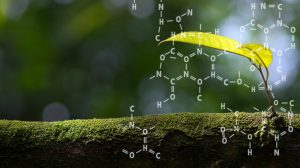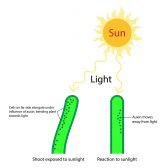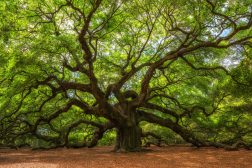Antioxidants
synthetic or natural substances added to products to prevent or delay their deterioriation by action of oxygen in air. In biochemistry and medicine, antioxidants are enzymes or other organic substances, such as vitamin e or beta-carotene, that are capable of counteracting the damaging effects of oxidation in animal tissue.
Dictionary > Antioxidants
You will also like...

Effect of Chemicals on Growth & Development in Organisms
Plants and animals need elements, such as nitrogen, phosphorus, potassium, and magnesium for proper growth and developme..

Plant Auxins – Phototropism & Geotropism
Plants produce hormones to regulate their growth. Auxins, for instance, influence plant growth. Know the role of auxin i..

Seed Plants
Seed plants are vascular plants. They differ from the other vascular plants in producing seeds that germinate into a new..

Human Reproduction
Humans are capable of only one mode of reproduction, i.e. sexual reproduction. Haploid sex cells (gametes) are produced ..

Adaptation Tutorial
Adaptation, in biology and ecology, refers to the process or trait through which organisms or the populations in a habit..

Homeostatic Mechanisms and Cellular Communication
Homeostasis is the relatively stable conditions of the internal environment that result from compensatory regulatory res..

